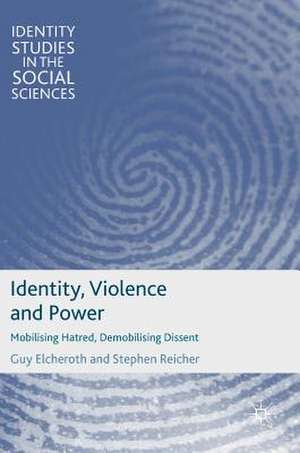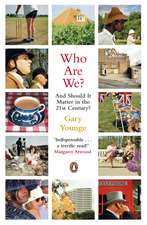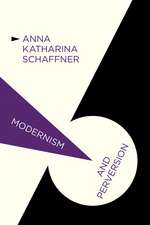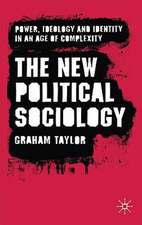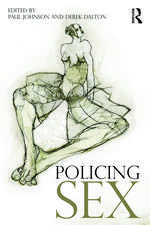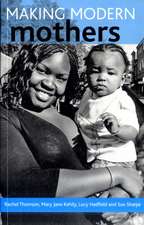Identity, Violence and Power: Mobilising Hatred, Demobilising Dissent: Identity Studies in the Social Sciences
Autor Guy Elcheroth, Stephen Reicheren Limba Engleză Hardback – 3 mar 2017
The book explores an alternative way of looking at conflict, and dissects the policies and processes that bring specific identities to the fore, taking seriously the capacity to resist and face abusive authority.
Identity, Violence and Power will be of interest to students and scholars of sociology, social psychology, history, political science and conflict studies.
| Toate formatele și edițiile | Preț | Express |
|---|---|---|
| Paperback (1) | 212.59 lei 43-57 zile | |
| Palgrave Macmillan UK – 6 noi 2019 | 212.59 lei 43-57 zile | |
| Hardback (1) | 638.75 lei 43-57 zile | |
| Palgrave Macmillan UK – 3 mar 2017 | 638.75 lei 43-57 zile |
Din seria Identity Studies in the Social Sciences
-
 Preț: 383.01 lei
Preț: 383.01 lei -
 Preț: 386.85 lei
Preț: 386.85 lei -
 Preț: 388.74 lei
Preț: 388.74 lei -
 Preț: 378.43 lei
Preț: 378.43 lei - 5%
 Preț: 715.53 lei
Preț: 715.53 lei -
 Preț: 386.85 lei
Preț: 386.85 lei -
 Preț: 384.53 lei
Preț: 384.53 lei -
 Preț: 384.91 lei
Preț: 384.91 lei -
 Preț: 388.74 lei
Preț: 388.74 lei -
 Preț: 387.78 lei
Preț: 387.78 lei -
 Preț: 388.74 lei
Preț: 388.74 lei -
 Preț: 212.59 lei
Preț: 212.59 lei -
 Preț: 395.43 lei
Preț: 395.43 lei -
 Preț: 387.22 lei
Preț: 387.22 lei -
 Preț: 386.85 lei
Preț: 386.85 lei -
 Preț: 384.91 lei
Preț: 384.91 lei
Preț: 638.75 lei
Preț vechi: 751.46 lei
-15% Nou
Puncte Express: 958
Preț estimativ în valută:
122.33€ • 126.04$ • 102.48£
122.33€ • 126.04$ • 102.48£
Carte tipărită la comandă
Livrare economică 24 februarie-10 martie
Preluare comenzi: 021 569.72.76
Specificații
ISBN-13: 9780230272606
ISBN-10: 0230272606
Pagini: 240
Ilustrații: XXVIII, 264 p. 7 illus., 2 illus. in color.
Dimensiuni: 148 x 210 x 21 mm
Greutate: 0.5 kg
Ediția:1st ed. 2017
Editura: Palgrave Macmillan UK
Colecția Palgrave Macmillan
Seria Identity Studies in the Social Sciences
Locul publicării:London, United Kingdom
ISBN-10: 0230272606
Pagini: 240
Ilustrații: XXVIII, 264 p. 7 illus., 2 illus. in color.
Dimensiuni: 148 x 210 x 21 mm
Greutate: 0.5 kg
Ediția:1st ed. 2017
Editura: Palgrave Macmillan UK
Colecția Palgrave Macmillan
Seria Identity Studies in the Social Sciences
Locul publicării:London, United Kingdom
Cuprins
Part I - Critique.- 1. Hateful groups and weak powers?.- 2. Evil leaders and obedient masses?.-3. Part II - Model.- 4.Identity: the group as a collective performance.- 5.Violence: the transformation of identity by collective shocks.- 6. Power: the role of leadership in critical junctures.- 7. Part III – Case Studies.- 8. Riots, religion and the mobilisation of communal hatred in India.- 9. Ethnic violence in the former Yugoslavia: from myth to reality.- 10. When ‘rallying the nation’ fires back.- Conclusion
Recenzii
“The book is interesting and uses diverse examples from around the world. … I would recommend this book for scholars who are interested in the topics of identity, violence, and power and/or who are interested in how historical case studies can be used in a scientific way to help us understand relationships between thoughts and behaviors.” (Helen C. Harton, PsycCRITIQUES, Vol. 62 (32), August, 2017)
Notă biografică
Guy Elcheroth is Senior Lecturer in Social Psychology at the University of Lausanne, Switzerland. He is currently Principal Investigator of the Pluralistic Memories Project, a cross-national research for development consortium, and Co-director of the Lausanne Life Course and Inequality Research Centre.
Stephen Reicher is Wardlaw Professor of Psychology at the University of St. Andrews, UK. He is a Fellow of the British Academy, a Fellow of the Royal Society of Edinburgh and a Fellow of the Academy of Social Sciences.
Stephen Reicher is Wardlaw Professor of Psychology at the University of St. Andrews, UK. He is a Fellow of the British Academy, a Fellow of the Royal Society of Edinburgh and a Fellow of the Academy of Social Sciences.
Textul de pe ultima copertă
This book provides a systematic examination of the re-patterning of collective identities through violence and the role of power politics in such critical transitions. The authors show how identity is created through shared social practices and how it is transformed when collective violence disrupts common practices. Three case studies show how this model sheds new light on the dynamics of religious violence in parts of India, on ethnic violence in the former Yugoslavia, as well as on anti-war protest in the UK in reaction to the military invasion of Iraq.
The book explores an alternative way of looking at conflict, and dissects the policies and processes that bring specific identities to the fore, taking seriously the capacity to resist and face abusive authority.
Identity, Violence and Power will be of interest to students and scholars of sociology, social psychology, history, political science and conflict studies.
The book explores an alternative way of looking at conflict, and dissects the policies and processes that bring specific identities to the fore, taking seriously the capacity to resist and face abusive authority.
Identity, Violence and Power will be of interest to students and scholars of sociology, social psychology, history, political science and conflict studies.
Caracteristici
Examines political conflict and dissent from a social psychological perspective Applies a theoretical perspective to a series of contemporary case studies Explores an alternative way of looking at conflict
